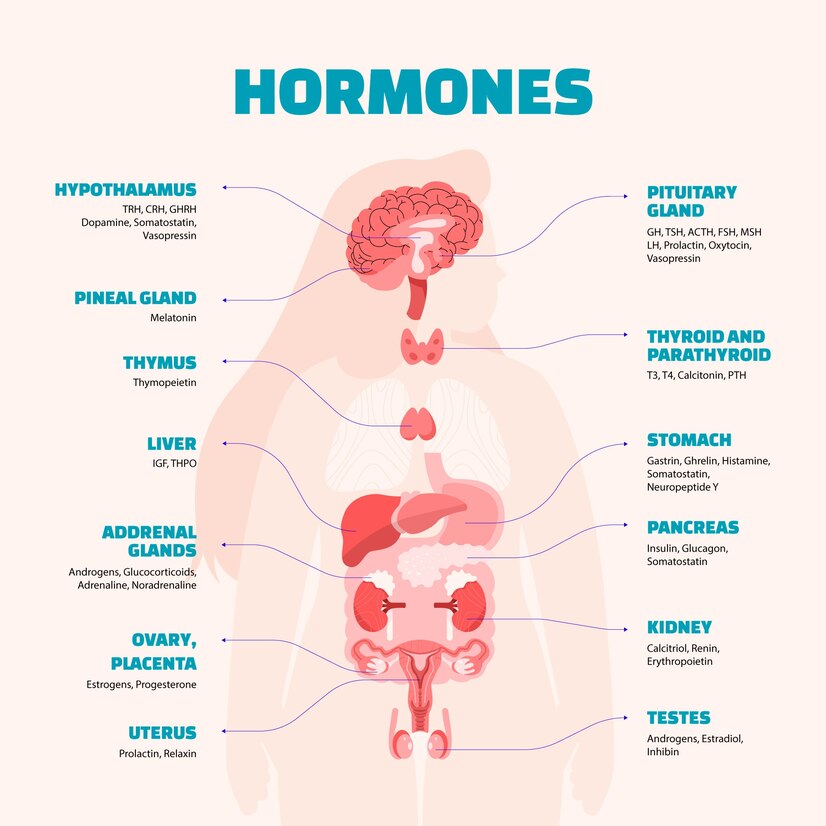The Intricate Connection: Hormones and Their Impact on Mental Health
The relationship between hormones and mental health is a complex and fascinating area of study that continues to yield important insights. As we delve deeper into the intricate workings of the endocrine system, we're uncovering how hormonal imbalances can profoundly affect mood, cognition, and overall mental well-being. In this comprehensive exploration, we'll examine the latest research on the hormone-mental health connection and its implications for treatment and well-being.
Key Hormones Influencing Mental Health
Several hormones play crucial roles in regulating mood and cognitive function. Understanding these hormones and their effects is essential for comprehending the hormone-mental health relationship.
- Cortisol: The stress hormone that affects anxiety and depression
- Thyroid hormones: Influential in mood regulation and cognitive function
- Sex hormones (estrogen, progesterone, testosterone): Impact mood swings, anxiety, and depression
- Oxytocin: Known as the 'love hormone,' affects social bonding and stress reduction

Hormonal Imbalances and Mental Health Disorders
Recent studies have shed light on the significant impact hormonal imbalances can have on mental health. From depression and anxiety to cognitive decline, hormonal disruptions are increasingly recognized as potential underlying factors in various mental health conditions.
The Bidirectional Relationship: Mental Health Affecting Hormones
It's important to note that the relationship between hormones and mental health is bidirectional. While hormonal imbalances can lead to mental health issues, psychological stress and mental health conditions can also disrupt hormonal balance, creating a complex feedback loop.
Innovative Approaches to Diagnosis and Treatment
As our understanding of the hormone-mental health connection grows, new diagnostic tools and treatment approaches are emerging. These include:
- Advanced hormone testing methods for more accurate diagnosis
- Personalized hormone replacement therapies
- Integrative treatment approaches combining hormone regulation with psychological interventions
- Lifestyle modifications targeting both hormonal balance and mental well-being
The intricate relationship between hormones and mental health represents a frontier in medical science that promises to revolutionize our approach to mental health treatment. By recognizing and addressing the hormonal aspects of mental health, we open up new avenues for more effective, personalized interventions that can significantly improve quality of life for many individuals struggling with mental health issues.
